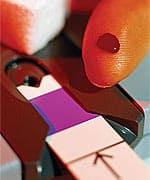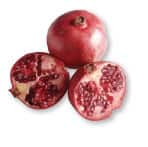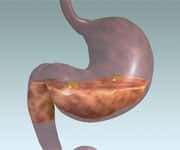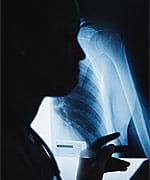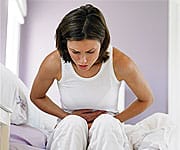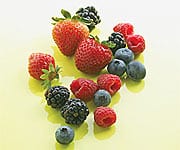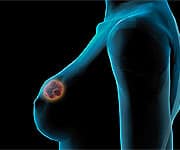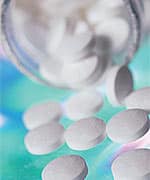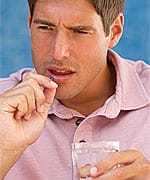Life Extension Magazine®
Mediterranean Diet Lowers Childhood Allergy, Asthma | |
A traditional Mediterranean diet may protect children from developing allergic rhinitis (hay fever) and asthma, according to a recent report.* Scientists evaluated 690 children, aged 7-18, residing on the island of Crete. The subjects’ parents provided information on the children’s diets and allergy and respiratory symptoms. Adherence to a Mediterranean diet was determined by the intake of 12 foods, including fruits, vegetables, whole grains, legumes, nuts, and olive oil. Greater adherence to the Mediterranean diet protected against allergic rhinitis and was modestly protective against asthma and skin allergy. Grapes high in antioxidants and resveratrol were especially protective against allergic rhinitis and wheezing, while oranges, apples, and tomatoes were also protective. Eating nuts (which are high in magnesium and vitamin E) at least three times per week halved the risk of wheezing. —Dayna Dye | |
| Reference | |
| * Chatzi L, Apostolaki G, Bibakis I, et al. Protective effect of fruits, vegetables and the Mediterranean diet on asthma and allergies among children in Crete. Thorax. Epub April 5, 2007. | |
High Lignan Intake May Lower Breast Cancer Risk | |
Women who consume high levels of lignans may have a reduced risk of breast cancer, according to a recent report.* Found in foods such as flaxseed, legumes, seeds, fruits, vegetables, and whole grains, plant lignans are a type of phytoestrogen. In a study of 58,049 postmenopausal women in France, scientists analyzed the subjects’ intake of lignans. Those whose intake was in the top 25% of participants had a 17% lower risk of developing breast cancer than those whose intake was in the lowest quartile. The protective effect was limited to cancers that were estrogen- or progesterone-receptor-positive. According to the study authors, “In view of the epidemiologic results of this study, the recommendation that women should consume diets that consist largely of fruits, vegetables, and cereals—all foods rich in lignans—should continue.” —Dayna Dye
| |
| Reference | |
| * Touillaud MS, Thiébaut ACM, Fournier A, Niravong, M, Boutron-Ruault MC, Clavel-Chapelon D. Dietary lignan intake and postmenopausal breast cancer risk by estrogen and progesterone receptor status. JNCI. 2007 Mar 21; 99(6):475-86. | |
Herbal Extract Fights Recurrent Urinary Tract Infections | |
| A widely available herbal extract known as forskolin may help reduce painful bladder infections and enhance the efficacy of anti-biotic treatment, according to Duke University scientists.1,2 Bladder infections (90% of which are caused by E. coli bacteria) are common in women and often recur despite antibiotic treatment. While antibiotics typically kill most bacteria in the bladder, a small number may survive by hiding in cells lining the bladder, where antibiotics cannot reach them. After antibiotic treatment, these bacteria may re-emerge and begin multiplying again, leading to another bladder infection. In mice, administering forskolin via injection or intravenously flushed out hidden E. coli bacteria into the urine, where they would be susceptible to antibiotic treatment. “This type of treatment strategy may prove to be beneficial for patients with recurrent urinary tract infections,” the Duke researchers concluded. —Dayna Dye | |
| Reference | |
| 1. Available at: http://www.nature.com/nm/journal/vaop/ncurrent/abs/nm1572.html. Accessed April 10, 2007. | |
Fatty Acid Balance Influences Depression Risk | |
Improving Americans’ dietary ratio of omega-6 to omega-3 fatty acids could decrease their risk of depression and inflammatory diseases, according to a new report.* Americans consume about 20 times more omega-6 fatty acids than omega-3 fatty acids, far in excess of an optimal ratio of 4:1 or even 2:1. Omega-6 fatty acids are found in eggs, poultry, and grains, while omega-3s are supplied by cold-water fish, flaxseed, and walnuts. The blood of 43 middle-aged to elderly men and women was analyzed for interleukin-6 (IL-6) and tumor necrosis factor-alpha (TNF-alpha), two cytokines that enhance inflammation. Those who consumed the most omega-6 fatty acids and reported more symptoms of depression had much higher levels of IL-6 and TNF-alpha. The scientists suggested that low intake of omega-3s are associated with chronic inflamation. —Dayna Dye | |
| Reference | |
| * Available at: http://www.sciencedaily.com/releases/2007/03/070329092058.htm. Accessed April 9, 2007. | |
Aspirin Use Lowers 24-Year Mortality Risk in Women | |
Women who regularly used low to moderate doses of aspirin (1-14 325-mg tablets per week) had a lower risk than non-users of dying from any cause, especially cardiovascular disease, during a 24-year period.* Scientists evaluated data from 79,439 women enrolled in the Nurses’ Health Study, who were free of cardiovascular disease and cancer at the study’s onset. The women were queried every two years from 1980 to 2004 concerning aspirin use. Current aspirin users had a 25% lower risk of dying from any cause, a 38% lower risk of cardiovascular disease death, and a 12% lower risk of dying of cancer than those that had never been regular users. According to the authors, “aspirin therapy may influence cardiovascular disease and cancer through its effect on common pathogenic pathways such as inflammation, insulin resistance, oxidative stress, and cyclooxygenase (COX) enzyme activity.” —Dayna Dye | |
| Reference | |
| * Chan AT, Manson JE, Feskanich D, Stampfer MJ, Colditz GA, Fuchs CS. Long-term aspirin use and mortality in women. Arch Intern Med. 2007 Mar 26;167(6):562-72. | |
Multivitamins Reduce Low-Weight Infant Deliveries | |
Supplying multivitamin supplements to pregnant women in Tanzania lowered their risk of giving birth to low-weight and small-for-gestational-age infants, according to a new report in the New England Journal of Medicine.* The researchers gave a daily multivitamin containing vitamin B-complex, vitamin C, and vitamin E, or a placebo, to 84,468 HIV-negative women at 12-27 weeks of gestation until six weeks following delivery. All participants received folic acid and iron supplements. The supplements reduced the risk of low birth weight (less than 5.5 pounds) by 18% and the risk of delivering an infant that was small for gestational age (less than the tenth percentile) by almost 25% compared to placebo. Women who supplemented with the multivitamin were also less likely to develop anemia. “In light of these findings, we recommend that multivitamins be considered for all pregnant women in developing countries,” the scientists concluded. —Dayna Dye | |
| Reference | |
| * Fawzi WW, Msamanga GI, Urassa W, et al. Vitamins and perinatal outcomes among HIV-negative women in Tanzania. N Engl J Med. 2007 Apr 5;356(14):1423-31. | |
Nutrient Combination May Help Prevent Hearing Loss | |
| A combination of antioxidant vitamins and magnesium may help prevent noise-induced hearing loss, according to scientists at the University of Michigan. The researchers treated guinea pigs with vitamins A, C, and E, vitamins A, C, and E plus magnesium, magnesium only, or a placebo, one hour before and five days after five hours of exposure to 120-decibel noise (comparable to a jet engine at take-off). Although neither the antioxidants nor magnesium alone protected hearing function, animals that received both antioxidants and magnesium experienced significantly less hearing loss and sensory cell death than the other groups. These findings may be useful in developing a protective nutritional therapy for people in occupations involving significant exposure to noise, as well as those suffering Alzheimer’s and Parkinson’s diseases, stroke-like ischemia, and other conditions that involve neural degeneration. —Elizabeth Wagner, ND | |
| Reference | |
| * Le Prell CG, Hughes LF, Miller JM. Free radical scavengers vitamins A, C, and E plus magnesium reduce noise trauma. Free Radic Biol Med. 2007 May 1;42(9):1454-63. | |
Lipoic Acid Lowers Migraine Frequency, Severity | |
Migraine sufferers may be able to reduce the frequency and severity of their headaches by supplementing with lipoic acid, a nutrient known to enhance energy metabolism.* Previous studies have shown that other “mitochondrial energizers” such as vitamin B2 (riboflavin) and coenzyme Q10 help prevent migraine. Belgian scientists recruited 44 migraine sufferers averaging 38 years of age, 26 of whom received 600 mg of lipoic acid daily for three months while the remaining 18 subjects received placebo. The frequency of headaches was modestly reduced in the lipoic acid group compared to the placebo group. Intra-group analysis showed that the lipoic acid group had markedly reduced frequency and severity of headaches, as well as fewer headache days. While further studies are needed, these preliminary findings suggest lipoic acid may offer benefits for migraine prevention. —Elizabeth Wagner, ND | |
| Reference | |
| * Magis D, Ambrosini A, Sandor P, Jacquy J, Laloux P, Schoenen J. A randomized double-blind placebo-controlled trial of thioctic acid in migraine prophylaxis. Headache. 2007 Jan;47(1):52-7. | |
Chinese Study: Carnitine May Boost Male Fertility | |
Supplementing with L-carnitine or acetyl-L-carnitine may help improve male infertility, according to a recent research review.* Male infertility affects an estimated 40% of infertile married couples. Scientists in Beijing, China, evaluated data from nine randomized trials that examined the efficacy of the two forms of carnitine on several measures of male fertility. Supplementing with carnitineproduced significant improvements in pregnancy rate, total sperm motility, and forward sperm motility, though no significant effects on sperm concentration were seen. The scientists believe that supplementing with L-carnitine and/or acetyl-L-carnitine may help improve sperm kinetic features and improve pregnancy rate in patients affected by male infertility. —Elizabeth Wagner, ND | |
| Reference | |
| * Zhou X, Liu F, Zhai S. Effect of L-carnitine and/or L-acetyl-carnitine in nutrition treatment for male infertility: a systematic review. Asia Pac J Clin Nutr. 2007;16 Suppl:383-90. | |
Subjects Sought for Trial of Vitamin D to Treat Prostate Cancer | |
An international group of scientists is recruiting 1,000 men to participate in a two-year study to determine whether combining high-dose vitamin D with conventional chemotherapy improves treatment outcomes for patients with advanced prostate cancer. The researchers hope a pill containing a high dose of calcitriol, a biologically active form of vitamin D, will work with the chemotherapy drug Taxotere® (docetaxel) to improve survival rates among patients with advanced prostate cancer. Such patients who have stopped responding to traditional hormone therapy currently have few options. For more information, please contact Nicole Adams, public relations officer for the BC Cancer Agency, at 604-877-6272. —Robert Gaston | |


